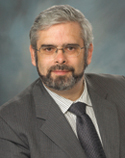Page Content
 Everything has changed in Alberta politics, except for anything important.
Everything has changed in Alberta politics, except for anything important.
Over the last couple of weeks, Ed Stelmach, facing a divided caucus and the prospect of an election campaign in which he would be the main issue, announced his intention to resign as premier and leader of the Progressive Conservative Party. Finance Minister Ted Morton quickly removed himself from cabinet to launch his own bid for the leadership, a manoeuvre that spared Morton the indignity of delivering a budget for which he could muster only tepid enthusiasm. In a bit of collateral damage, Education Minister Dave Hancock could not raise support from his colleagues in such uncertain times for a far-reaching proposal he was preparing to present to teachers and school boards to transform education and the nature of teachers’ work.
Across the political street, Dr. David Swann revealed his intention to step down from the leadership of the Alberta Liberal Party, only days after independent MLA Dave Taylor, who lost his bid to lead Alberta’s Liberals to Swann in 2008, announced he would join the Alberta Party, thereby becoming its first sitting MLA.
Through all of this, Danielle Smith, leader of the Wildrose Alliance Party, attempted to position her party and its four MLAs as the government presumptive of Alberta while the two members of the New Democrat caucus were the very model of political propriety and stability.
All of this was almost too much for those of us who watch Alberta politics as a vocation or avocation. Where we had become used to our usual political game resembling an amateur cricket match—orderly, slow, polite and with frequent breaks for scones and tea—a hockey game suddenly broke out. And not just any hockey game. We’re talking Don Cherry Rock’em Sock’em hockey, with elbows out, helmets optional and not a few people wearing loud sports jackets.
Yet at the core of things, not much has changed. While pundits pun, bloggers blog and tweeters tweet, so far Albertans have not had a meaningful conversation about the critical issues that underlie the political uncertainty in this province.
Perhaps the most immediately critical of these issues involves the very foundation of our government’s finances. One of Stelmach’s first acts upon becoming premier was to undertake a sweeping review of the province’s royalty structure with the goal of ensuring that Albertans were receiving fair value for the sale of their resources. Regrettably, the premier’s attempt to secure even modest increases in royalties coincided with a temporary global decline in energy prices and precipitated a “capital strike” as drilling activity was diverted to perfidious Saskatchewan. The energy industry howled, pumped money into the Wildrose Alliance coffers and quickly forced Stelmach into a full retreat.
The premier’s return to the traditional script was marked symbolically by his cancellation of a previously scheduled increase in liquor taxes that cost government $180 million. The only way taxes were moving on his watch was downward.
And so we’re stuck with a government that can’t afford to pay for ongoing programs from ongoing revenues. A flattened tax structure, a refusal to consider a sales tax, a benevolent royalty regime and a boom–bust economy have all contributed to a budgetary deficit that will likely exceed $5 billion this year.
On February 24, we’ll see the government’s response, and it won’t be pretty. There will be cuts amounting to hundreds of millions of dollars, and education is in line to take a substantial hit. On the sidelines, some Progressive Conservatives, along with the Wildrose Alliance Party, will criticize Stelmach for not doing enough slashing and burning.
To be sure, some voices, notably those of the New Democrats and some of the founders of the Alberta Party and the odd member of the government caucus, such as Doug Griffiths, are questioning the province’s dysfunctional business-as-usual approach—but we’re still a long way away from having a grown-up conversation about this issue. It’s a conversation we need to have and we need to have it now.
I welcome your comments—contact me at dennis.theobald@ata.ab.ca.
